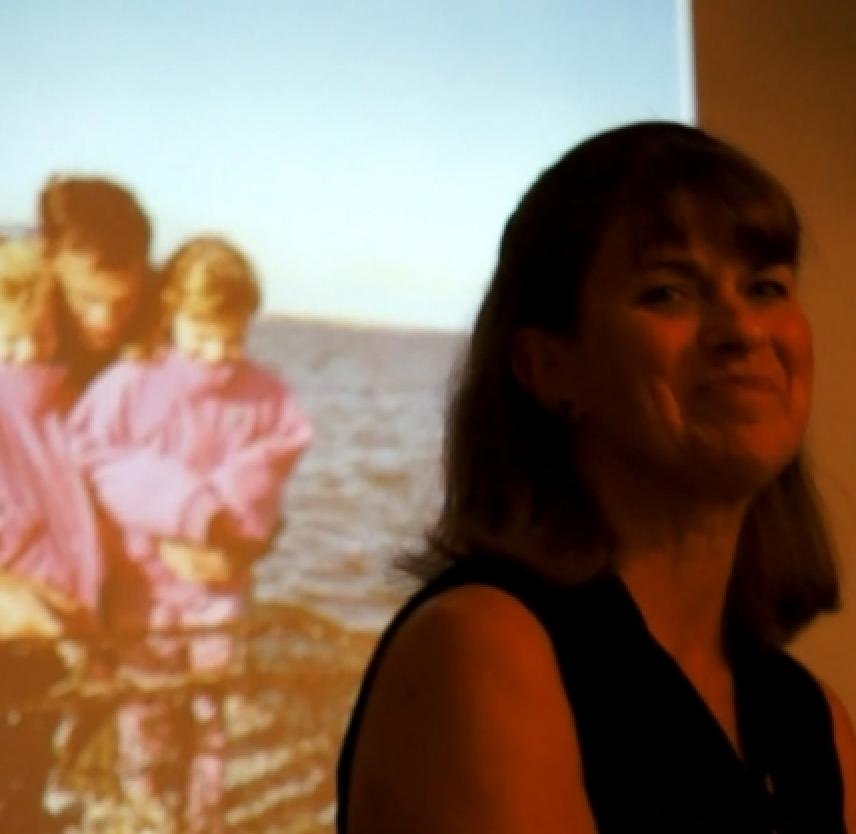
Last year, I gave my very first talk at a brain injury rehabiliation conference in Williamsburg, Virginia, and I was a nervous wreck! My photo and biography were included in the brochure. Every time I looked at that brochure, I was both proud and embarrassed because my name had no long string of initials following it, no list of distinguished papers, and no major awards. A doctor who knew me asked if I’d like to try speaking after he read my book. I responded yes with a bit of unease. I said yes because I was the author who said that fear is more debilitating than any injury or illness … but, truthfully, I felt a bit out of my league.
The talk I decided to give was entitled, The Ripple Effect: How Caregiver Communication and Encouragement Benefit Recovery After TBI. I presented it as a narrative with highlights and family pictures. I presented it as a story.
Upon arrival at the conference, there was a technical glitch. My MacBook computer would not sync with the PowerPoint projector — more sweating. Then, with five minute to spare, we got it to work, and I was ON.
Looking around the room I saw professionals, doctors, therapists, individuals with brain injury, students, and caregivers. Standing there, I wondered Do I have anything of value to tell these people? As it turns out, I did. Simply sharing my story and the insights garnered from my experience created a feeling within the room that I can only describe as synergistic — everyone listened intently, some cried, at times everyone laughed, and thoughts, experiences, and knowledge were shared.
In several other sessions at that conference, I experienced the same thing. Dr. Jeffrey Barth kept me spellbound and had me laughing out loud with stories about concussions! Dr. Jeffrey Kreutzer made me nod with understanding as he read excerpts from stories about ambiguous loss. I met people I could relate to, people who had been through some version of what I had been through or who worked daily in the medical/TBI field. Mingling among so many people with the singular goal of helping individuals and families affected by TBI was both reaffirming and exhilarating!
I met a young man who struggled with depression from his TBI, and a woman who inspired everyone with her sunny disposition despite years of debilitating head pain. I met a caregiver who studied medicine to help others after her partner sustained a TBI, and I met a new friend who lost her brother to a severe TBI after losing two other brothers. Unthinkable stories. Uplifting stories. Miraculous stories. And from these stories, I was able to make more sense of my own story.
According to blogger Leo Widrich, our brains are wired for stories. We learn and remember more when we hear them. In his article: The Science of Storytelling: Why Telling a Story Is the Most Powerful Way to Activate Our Brains, he states:
There is a huge TBI community out there eager and willing to help each other through shared history and a desire to make life better. It may feel awkward at first, but sharing our stories has the power to heal, not only our own hearts, but others as well. So why not find a conference, a workshop, or a support group, and share your story?

Comments (5)
Please remember, we are not able to give medical or legal advice. If you have medical concerns, please consult your doctor. All posted comments are the views and opinions of the poster only.
Anonymous replied on Permalink
Anonymous replied on Permalink
Anonymous replied on Permalink
Anonymous replied on Permalink
Anonymous replied on Permalink